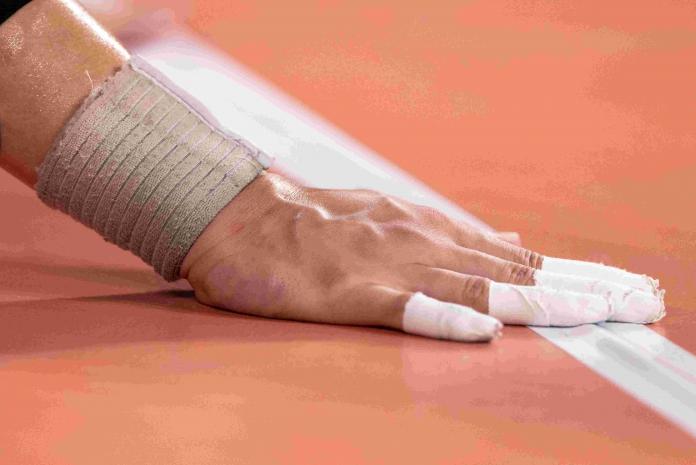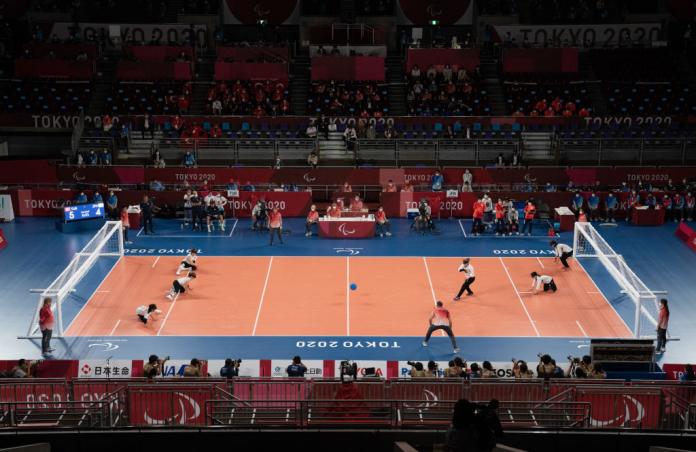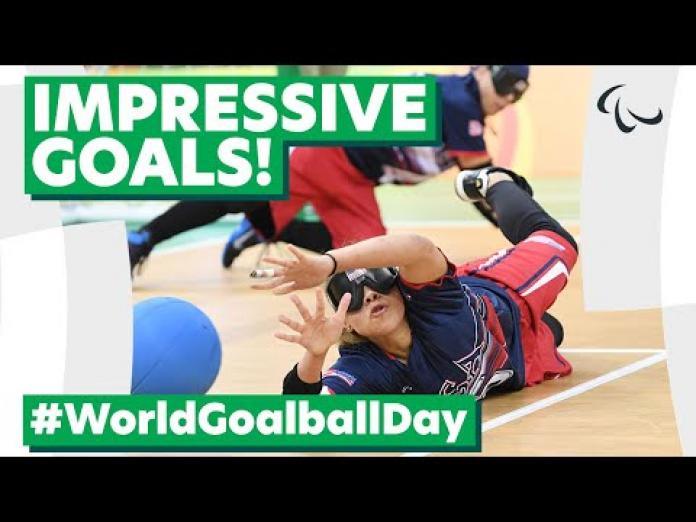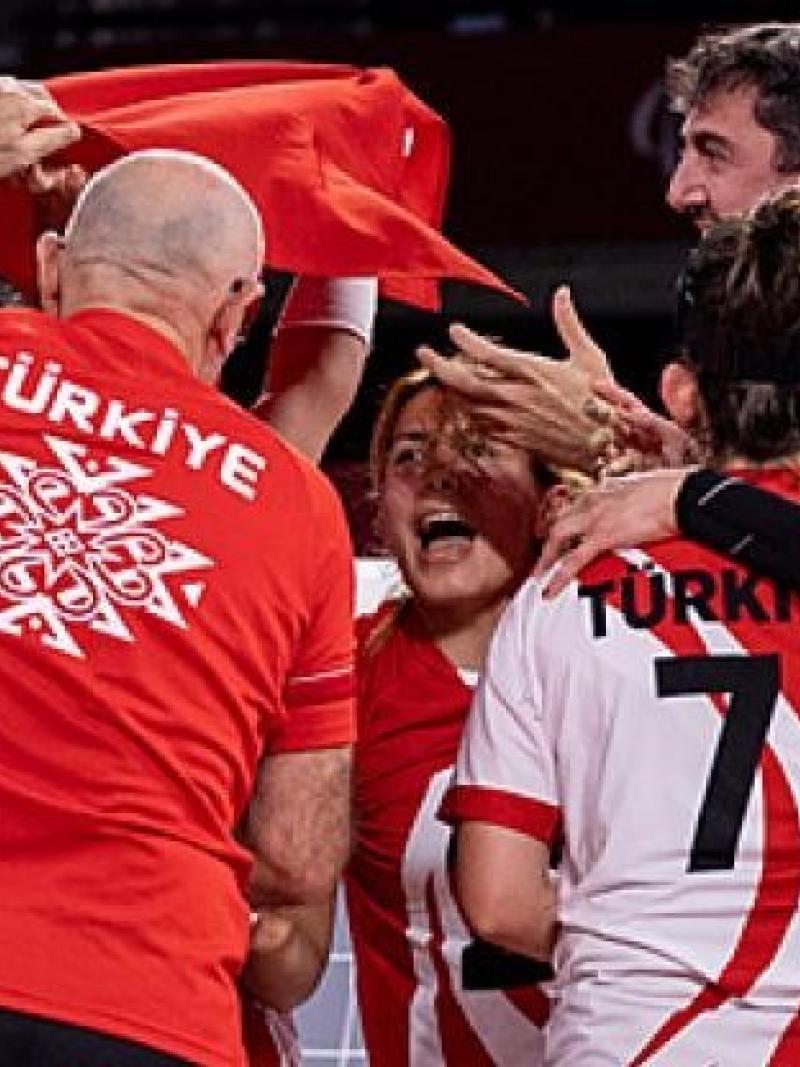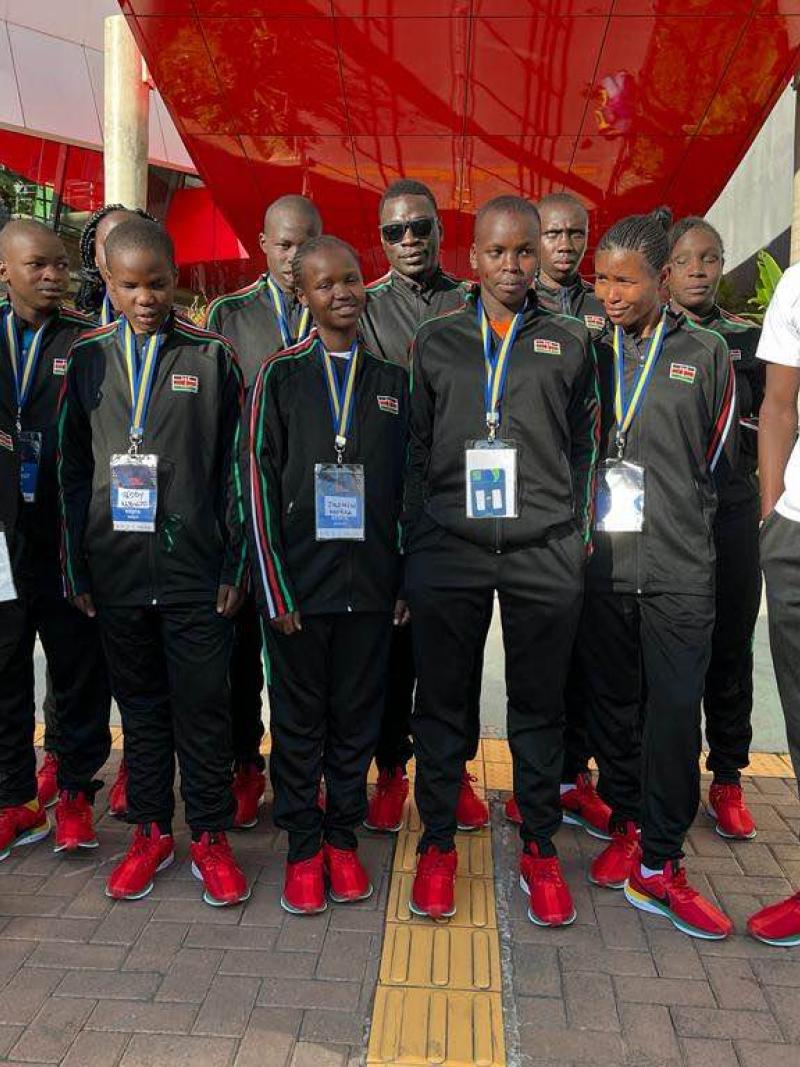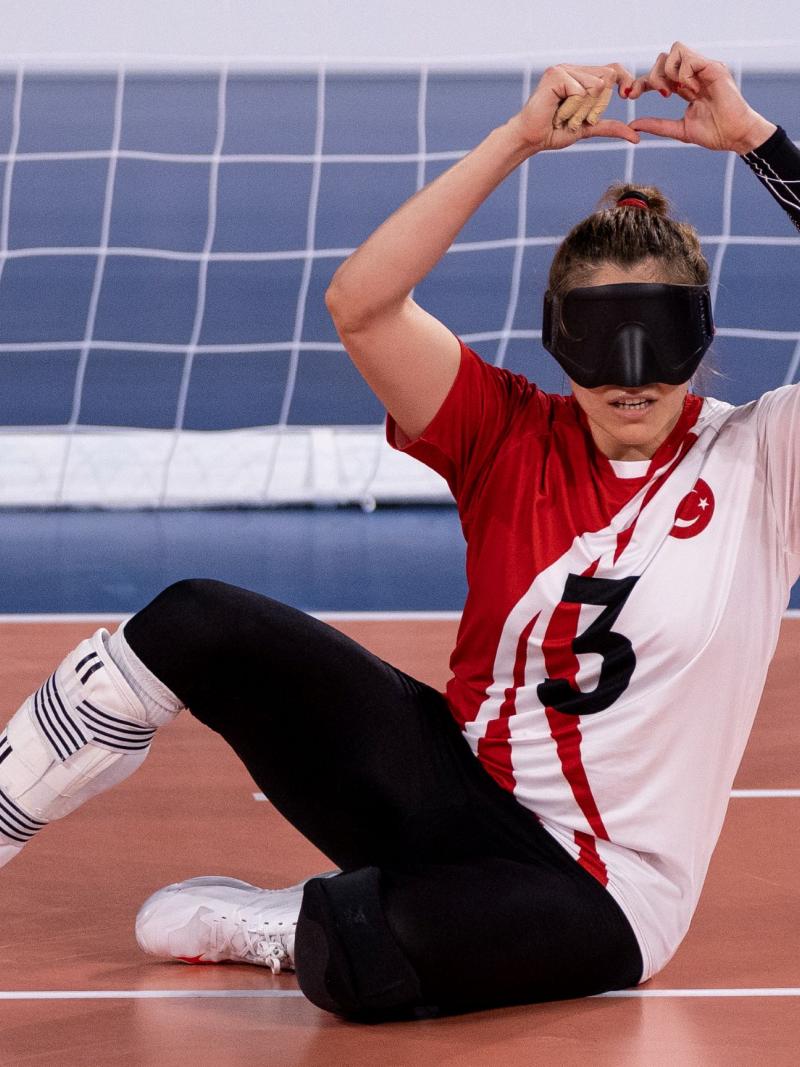The athletes' guide to goalball
Three of the stars competing in goalball at the first European Para Championships, share their insights into this guided team sport unlike any other 12 Aug 2023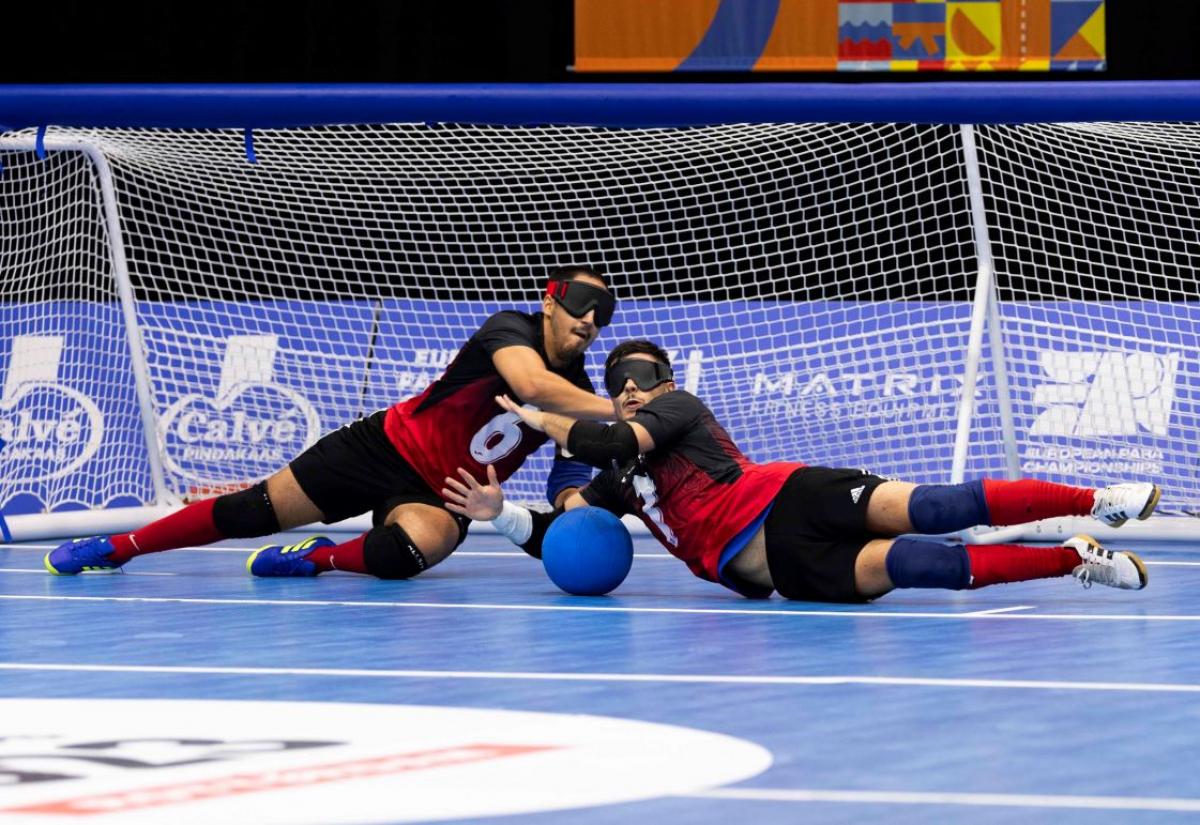
Pedro Martinez feels free when he takes to the goalball court.
Wearing his eyeshade, the Spanish athlete relies on every sense except his sight. He listens to the ball and he touches the tape on the court’s surface to understand where he is.
As the venue falls silent for the start of play, he concentrates only on what he can hear and touch – the sound of the bells in the ball, the ball bouncing, and the movement of his opponents and teammates.
“When I’m inside the court with eyeshades, I feel totally free without any pressure. I forget everything that is outside of the court, my focus is only on the court,” said Martinez, who took up goalball when he was 14 years old.
“The eyeshades help me to think only about what is happening in the game, and I forget everything else.”
Goalball in the spotlight
Goalball is one of two sports on the Paralympic programme without an Olympic counterpart. It is played by athletes who either have a vision impairment or are blind, and is one of 10 sports being contested at the first multi-sport European Para Championships in Rotterdam, Netherlands.
The objective of goalball is to score points by throwing a ball containing bells past the opponents and into their net. Players wear eyeshades to ensure a level playing field, stay on their hands and knees to defend their goal and score against their opponents, with only the sound of the ball to guide them. Teams are made up of six players, with three members playing on the court at the same time.
“I like goalball because it is totally different from other sports. This is what makes this sport special,” Martinez said.
“It’s created for blind people and people with vision impairments. Everybody in goalball starts at the same level. It’s not adapted (from the Olympic version of a sport), so you don’t need previous experience or skills.”
Sweden’s Olof Ryberg says that goalball is a game of physicality and strategy, even though people may think that it is a “soft game” because athletes are on their hands and knees.
“You do a discus rotation when you throw the ball to get as much speed as possible. You can bounce the ball, you can throw soft, and there is a lot of different types of shots you can do to confuse you opponent and to manage to get past them,” Ryberg explained.
“When you defend, you lay on your side on your hip to protect as much of the goal as possible. It’s very important since the ball has much rotation and it’s very important to be able to defend with much power.”
“Sometimes it may look quite soft, like, ‘Oh the players are just laying there. What’s the big deal?’ But if you don’t, if you are not prepared when the ball hits you, or rather you hit the ball, the ball will go over you and probably result in a score.”
Infinite possibilities
While Ryberg says goalball is “the most fun sport to watch and play”, it means much more than that to him. The Swede, who was born with a vision impairment, tried out many sports, including football and gymnastics, before being introduced to goalball at age 14.
“Para sports have definitely continued to change my life,” said Ryberg, who competed in Para athletics at the Tokyo 2020 Paralympic Games. “Even before I began with Para sport, I would say that sport changed my life.
“But before I was introduced to Para sport, I began to feel that I was lacking compared to my peers. I was no longer able to compete on the same terms due to my vision impairment.
“And then Para sport came and introduced me to an entire new world to me and it was amazing to be able to continue my life as an athlete.”
Skill up for goalball
France’s Ambroise Daudin remembers how surprised he was when he was first introduced to the sport six years ago. Since then, the sport has allowed him to share both good and difficult times together with his friends.
“I didn’t expect it. It is very interesting because it’s something that was created from the blind culture. And it’s something you won’t find anywhere else,” he said.
“What I like about goalball is being together with my team and living hard things, because it’s good for you. When you live hard things, you live good things because whatever you live after that, it’s OK. You can do it.”
Asked for three essential skills in the sport, Daudin chose ‘concentration’, ‘accuracy’, and ‘teamwork’.
“It’s important to listen and focus all the time in the game. When you’re tired, it’s really hard to be focused all the way. You need to be accurate because when you lost your vision, when you are blind, it is difficult to be accurate.”
Athletes on the French team sing together before and after the match, which helps them create a team spirit, Daudin explained.
“Music is very important to us. We train together, we travel together, and we are friends,” Daudin said.
“I’m a very bad singer. I don’t even know the title because I’m the oldest one on the team and all the other ones are young – I don’t know their songs,” he said with a laugh. “We sing pop songs, hip hop songs, etc. They are not bad but I’m too old for this!”
For Daudin, goalball has also helped him in life, not just in sports.
“I used to stay at home because I was lost after my sight loss. Life was hard to manage and I met goalball and it took me out of my home, out of my problems.”
“And I became stronger. And now I am what I became – a goalball player.”
Goalball finals at the European Para Championships take place on 13 August. Visit the European Para Championships website for full results and to watch live coverage.





